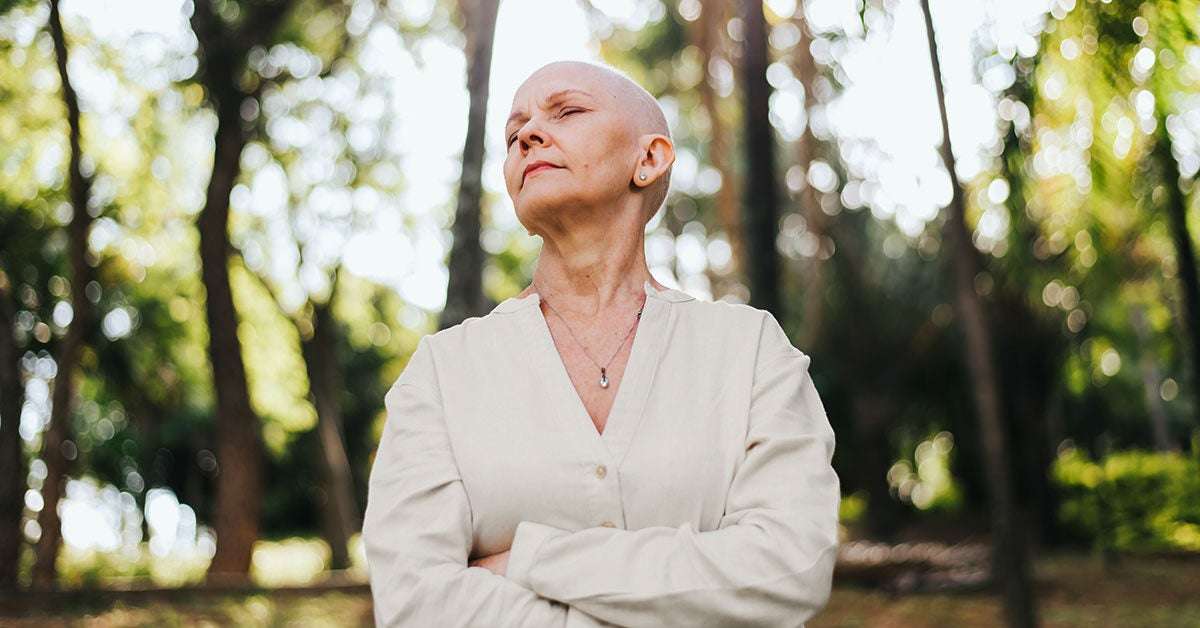Key takeaways:
-
Medicaid prevents a lack of finances from being a barrier for individuals seeking mental health services.
-
The Affordable Care Act requires all marketplace plans to cover mental health services, including behavioral health treatment. Most individual and small employer qualifying plans also require this.
-
Mental health therapy includes treatment for substance abuse disorder.
 Portra/E+ via Getty Images
Portra/E+ via Getty Images
Almost 1 in 4 adults with a mental illness reported not being able to receive the treatment they needed in 2021. Many people are unable to receive help due to lack of insurance or limited coverage of services.
Programs like Medicaid help individuals who cannot afford health insurance. Medicaid provides access to therapy, rehabilitation, and other essential services. As of January 2022, Medicaid provides assistance to 79.9 million individuals in the U.S. It is the single largest payer of mental health services in the country.
Below, we’ll break down how Medicaid works for mental health services. We’ll also provide resources to help you get the assistance you need.
What is Medicaid?
Medicaid is a government program that’s administered by states. It provides free or low-cost health insurance to individuals with low income.
President Lyndon B. Johnson signed Medicaid into law in 1965. It was designed to provide medical insurance to individuals receiving cash assistance. Since that time, Medicaid has evolved to cover individuals with low income, pregnant women, people with disabilities, and other individuals in need of long-term care.
Medicaid guidelines are set by the federal government. However, each state runs its own Medicaid program. The program is funded by both the federal and state government. This also means that eligibility and services will vary depending on the state.
Does Medicaid cover mental health services and behavioral treatment?
Yes. All Medicaid programs cover some mental health and substance use disorder services. The specific services covered will depend on your state.
The Mental Health Parity and Addiction Equity Act of 2008 required healthcare plans to provide mental health benefits equal to medical and surgical coverage. This means an individual with a mental illness receives the same coverage as an individual with a physical illness. It also means that your insurance provider cannot charge you a higher copay or deductible for mental health services.
Behavioral treatment for a mental illness can include counseling and psychotherapy — also known as talk therapy. Psychiatrists use talk therapy to help individuals with a broad variety of mental illnesses. Counseling services are expert help given by a licensed professional. A licensed professional, such as a therapist or psychiatrist, has to provide these services for Medicaid to cover the costs.
What other mental health services does Medicaid cover?
Medicaid also covers substance use disorder as a mental health service. Most people know this treatment as drug rehab. This process begins with detoxification, which is a supervised withdrawal from substance use. It is not a treatment itself but it is the first step to rehab. There are two different ways that an individual can participate in this rehabilitative treatment:
-
Inpatient and residential — 24/7 care lasting days or weeks
-
Outpatient — treatment program site while you live on your own
Medicaid will cover both of these options, to a certain extent. Medicaid will also cover any medication-assisted treatment (MAT) deemed necessary for recovery. This method of treatment uses FDA-approved medication with counseling and behavioral therapies. Currently, there are three approved drugs: methadone, buprenorphine, and naltrexone.
What mental health services are NOT covered by Medicaid?
Specific mental health benefits will depend on your state. A specific list can be found in the marketplace when comparing plans.
In some states — like Virginia and Maryland — Medicaid will not cover family and marriage counseling, although it will cover individual counseling services. Other mental health services not covered include:
-
Career counseling
-
Coaching
-
Massage therapy
-
Holistic treatments
Other types of therapy not pertaining to mental health will depend on your plan.
There are barriers other than income to receiving mental health treatment. For example, all mental health providers don’t accept Medicaid. This makes it difficult for individuals with low income to receive the care they need even though Medicaid covers the treatment.
If you cannot receive treatment through Medicaid, all hope is not lost. There are other resources available to help you get the treatment you need, such as community health and mental health clinics. Universities and medical schools often have programs where you can see a psychiatrist in training at a reduced rate, too. You can call the program directors for the schools in your area to see if they offer these services.
The table below shows additional places you can search for free or low cost help in your area.
OrganizationWebsitePhone NumberSubstance Abuse and Mental Health Services Administrationwww.samhsa.gov1-800-622-HELP (4951)National Alliance on Mental Illnesswww.nami.org1-800-950-NAMI (6264)Health Resources and Services Administrationhttps://findahealthcenter.hrsa.govBased on location211www.211.org2-1-1
Who qualifies for Medicaid?
The requirements for Medicaid eligibility vary from state to state. You must be a resident of the state you are applying in. The factors that determine your eligibility are:
-
Income: Modified adjusted gross income (MAGI) is the basis for determining eligibility for most individuals.
-
Household size: This includes all people occupying the household unit.
-
Family size: All the people in the housing unit related by birth, adoption, and marriage.
-
Disability: A physical or mental condition that limits a person’s movements, senses, and activities.
There are 38 states along with the District of Columbia that have expanded Medicaid coverage under the Affordable Care Act. That means in those states you can qualify for Medicaid based on just your income. You can visit Healthcare.gov and complete an application to see if you are eligible for Medicaid in your state.
The 12 states that did not expand Medicaid coverage under the ACA are in the chart below. You can visit each state’s website to find out the eligibility requirements and benefits.
Medicaid expansion under the Affordable Care Act (ACA)
The Affordable Care Act (ACA) made more individuals eligible for Medicaid by eliminating some of the barriers to qualify. Under the ACA, there were only financial requirements. Qualifying adults must have income below 138% of the federal poverty level (FPL).
Not only did the ACA get rid of some of the qualification barriers, it also expanded the health benefits. There are 10 essential health benefits that all plans offered in the marketplace must provide. Mental health and substance use disorder service is included as one of the 10 essential health benefits. Substance use disorder is often referred to as substance abuse. The covered treatment includes but is not limited to behavioral treatment.
The bottom line
Medicaid provides financial relief for individuals with low income and their families. If you are in need of mental health services but cannot afford them, Medicaid may be able to help. You can complete an application online at Healthcare.gov to see if you qualify. Then, check with your state Medicaid website or department to learn more about the mental health services available to you.
Was this page helpful?
Habits for a Healthier Mind!
Sign up for our GoodRx Mental Well-being Newsletter to receive up-to-date information on the latest medications, tips, and savings that are most relevant to you.
Email address
I would also like to sign up for a free GoodRx account
By signing up, I agree to GoodRx’s Terms and Privacy Policy, and to receive marketing messages from GoodRx.
Medicaid covers mental health, behavioral health, and substance use disorder services, including therapy, so if you’re a Medicaid beneficiary, take note of this benefit.
Since the start of the pandemic, Medicaid enrollments have been steadily increasing, and now 82.8 million Americans are enrolled in Medicaid or the Children’s Health Insurance Program (CHIP).
If you’re a new or returning Medicaid member, you’ll want to understand which mental health services are covered. We offer a breakdown below. Just know that health care coverage will vary state by state and plan, so it’s important to check with your insurance provider before scheduling an appointment.
Therapy Is Covered By Medicaid
Over the years, the Affordable Care Act has adjusted the Medicaid requirements to ensure that Medicaid members have access to more comprehensive mental health care.
Thanks to these policy improvements and the enactment of the Mental Health Parity and Addiction Equity Act (MHPAEA)—which prevents limitations on mental health benefits for those enrolled in managed care organizations and state alternative benefit plans—Medicaid members now have access to a plethora of mental health services.
Medicaid also covers in-person and online individual and group therapy. Many providers offer family therapy, too. So long as you have a diagnosis and a medical prescription for a specific therapy, your health insurance provider should cover it. This means that health coverage also includes evidence-based therapies.
Some of these therapies include:
What’s not covered is couple’s therapy, career counseling or coaching, massage therapy, acupuncture, and other holistic treatments. Other types of therapy will depend on your plan. Transcranial magnetic stimulation (TMS), for instance, may or may not be covered. If you’re on Medicaid, you should ask to work with a care coordinator who can help you manage your care and treatment plans.
Verywell Mind’s Cost of Therapy Survey found that even with insurance, many Americans have struggled to find adequate care:
- 30% of Americans currently in therapy say they’ve encountered a lack of appointment availability or flexibility of the mental health professional
- 27% have had difficulty finding a mental health professional who is taking new patients
- 24% have had difficulty finding an in-network mental health professional
Medicaid Offers Additional Mental Health Support
Medicaid is the single largest payer for mental health services in the United States. While they didn’t always include therapy as a benefit and limitations do still exist, Medicaid now covers this and a myriad of other substance use, mental health, and behavioral health services.
If you’re enrolled in a Medicaid plan, some of your covered services may include:
- Psychological testing and evaluation
- Medication evaluation, prescription, and management
- Mental health clinic services
- Mental health rehabilitation
- Inpatient and outpatient treatment
- Residential rehabilitation
- Crisis services
- Inpatient psychiatric hospitalization
- Social work services
- Case management for chronic mental illness
Other services like tobacco use cessation, mental health skill-building, and peer support should also be covered. If you’re experiencing mental health concerns or battling a substance use disorder, it’s important to seek professional care and get the diagnosis and treatment you need.
If you or a loved one are struggling with substance use or addiction, contact the Substance Abuse and Mental Health Services Administration (SAMHSA) National Helpline at 1-800-662-4357 for information on support and treatment facilities in your area.
For more mental health resources, see our National Helpline Database.
Affording Out-of-Pocket Costs
Medicaid provides more mental and behavioral health coverage than Medicare. Both children and adults under Medicaid and CHIP have access to many different behavioral health services. Unfortunately, not every mental health service will be covered.
Here are some things to consider as you begin therapy or mental health treatment:
- Your plan may require a copay or coinsurance, which is the percentage or dollar amount you have to pay out of pocket.
- To get coverage, you need to choose a provider in your network.
- Your plan may set limits on the number of therapy sessions covered.
- You may need to get a referral from your primary care physician (PCP) before seeing a therapist.
- If the specific therapy isn’t covered, you will be expected to pay the full cost.
For patients with a severe mental health condition or illness, this can be problematic. Make sure you make the most of your plan before seeking alternative options. You may be surprised to find out just how much coverage you have.
If your therapy session, service, or treatment isn’t covered by Medicaid, for whatever reason, then you can make an appeal to your provider. If they are unwilling to pay for the service, then you’ll have to consider alternative options.
Here’s what you can do:
- Ask your provider about sliding-scale payment options which are based on income
- Consider community health centers or free clinics in your area
- Check available community mental health service programs in your state
- Consider using an app for free online therapy
- Call the NAMI HelpLine at 800-950-NAMI (6264) or text NAMI to 741-741 to talk with a crisis counselor
A Word From Verywell Mind
If you’re enrolled in Medicaid, you may be eligible for federal- or state-run programs, as well as free or low-cost services. Check with your state’s Medicaid program to see what’s available to you. There are many pathways to treatment, so don’t suffer in silence.
If you’re suffering from anxiety or depression, grieving a loss, battling a substance use disorder, or undergoing a major life change. Look for a therapist in your area. There are many cost-considerate providers willing to offer low-cost services to those in need.



